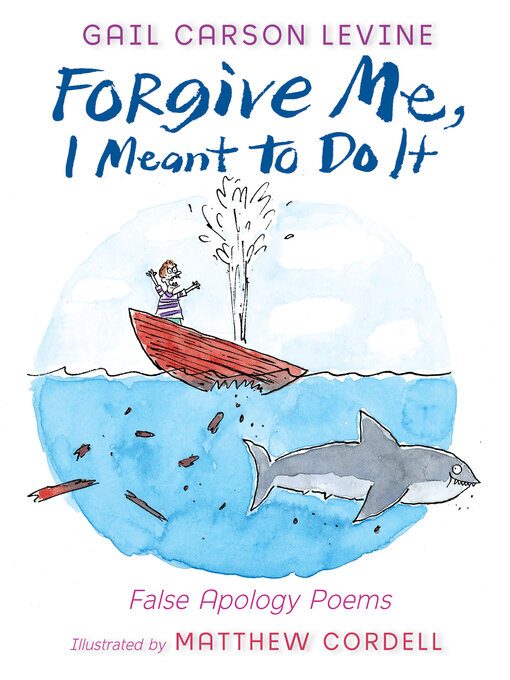This Is Just to Say
If you're looking for a nice happy book
put this one down and run away quickly
Forgive me sweetness and good cheer are boring
Inspired by William Carlos Williams's famous poem "This Is Just to Say," Newbery Honor author Gail Carson Levine delivers a wickedly funny collection of her own false apology poems, imagining how tricksters really feel about the mischief they make. Matthew Cordell's clever and playful line art lightheartedly captures the spirit of the poetry. This is the perfect book for anyone who's ever apologized . . . and not really meant it.





